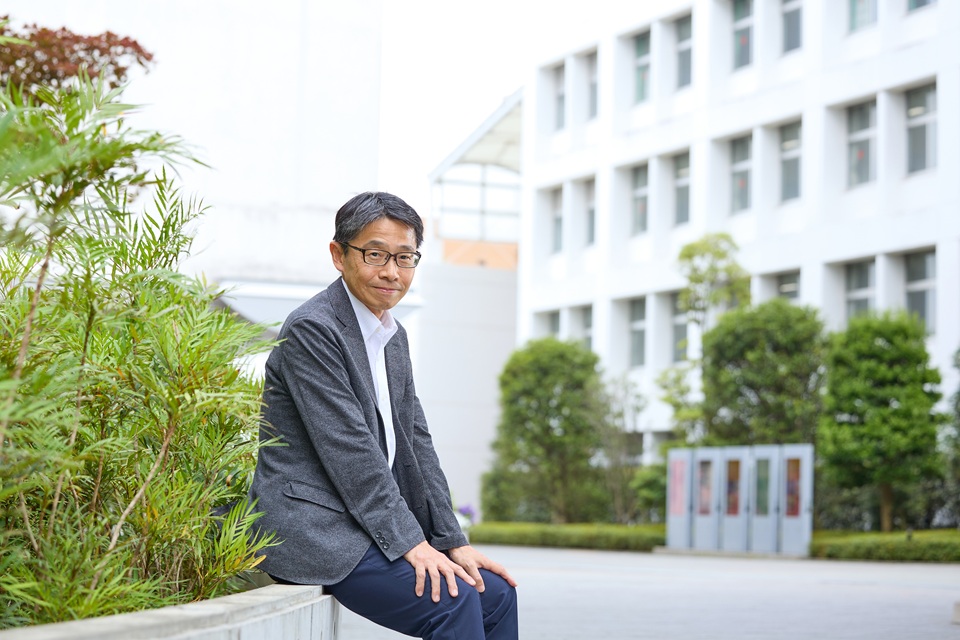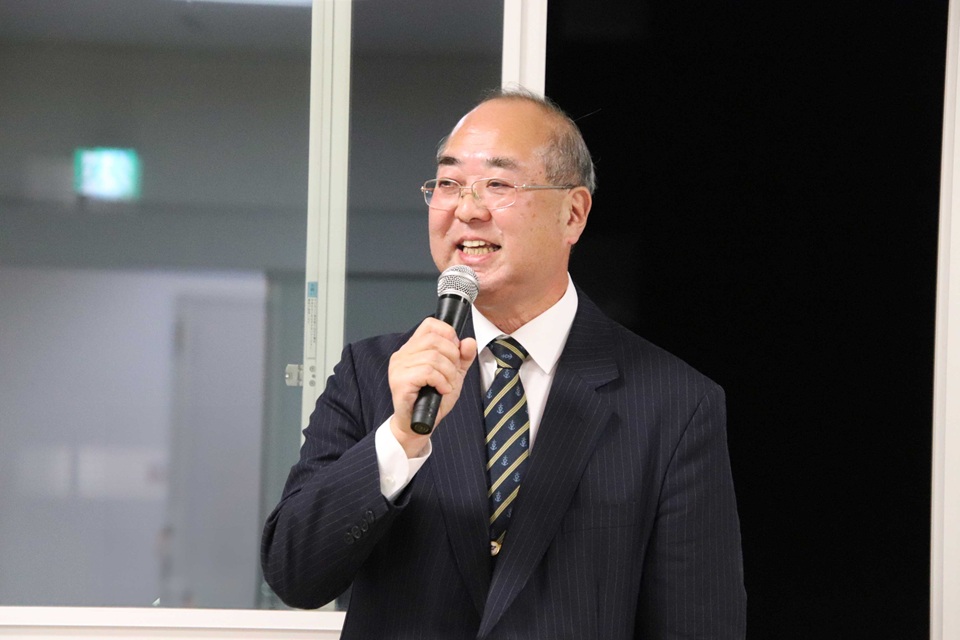- Asia University
- Graduate School
- Graduate School of Economics
- Graduate School of Economics
Graduate School of Economics
PAGE SECTIONS

- As a member of Asia, contribute to the development of the Japanese and Asian economies
- Develop human resources who can contribute
Graduate School of Economics
Graduate School of Economics aims to develop talented individuals with advanced expertise and contribute to the development of Japan and Asia. research fields are diverse, including economic theory, history, policy applications, and international and regional economies, particularly in Asia. For students aiming to obtain a license as a tax accountant, Course are available for those aspiring to become a tax accountant at Graduate School. Master’s Degree offered by this research school is eligible for exemption from tax accountant examination subjects, and the school has produced many graduates who aim to become tax accountants.
Basic information research school
| Major | Economics Major |
| course | Master's course doctoral program |
| degree | Master of Arts (Economics) PhD (Economics) |
| Course format | Daytime classes |
| capacity | 博士前期課程 30名
博士後期課程 9名 |
| Number of enrolled students | 博士前期課程 9名
博士後期課程 0名 |
| career options | Number of people who completed the master's program: 4 people 2 people currently looking for employment/job hunting Further education/Other: 2 students |
As of May 1, 2025
Message from research School Dean

Active in Asia
Fostering highly specialized professionals and research
Professor Hideyuki IBARAGI HideyukiFostering highly specialized professionals and research
Graduate School of Economics aims to develop highly specialized professionals and research who will play an active role in Asia by acquiring specialized knowledge and analytical tools that will help them understand and analyze the increasingly complex economic society, and by acquiring a global perspective. For this reason, the school is open to working adults and international International Student. The curriculum includes a wide range of specialized subjects in theory, history, policy and application, and international and regional economics, as well as tax law-related subjects for training tax accountants. By gaining a comprehensive understanding of the economic society from a variety of perspectives, including a global perspective, students will be able to acquire the ability to proactively tackle the advanced and complex challenges they face as members of the international community, including Asia.
Features of research School
research in a wide range of economic fields
The program is characterized by the wide range of fields that students can research, from economic theory to applied economics and Asian economics. In addition, Master’s Degree from this research school is eligible for exemption from tax accountant examination subjects, and many graduates aim to become tax accountants.Thorough small group instruction
In Graduate School research, it is important to write original papers based on precise thinking. To that end, it is essential to have a system that provides detailed guidance to each individual on a daily basis. In Graduate School of Economics small group instruction is strictly enforced, and the distance between faculty and students is very close, and research is conducted in a very homely atmosphere.Acquisition of Faculty license (specialized license)
You can obtain a Junior High School Specialized Certificate (Social Studies) and a High School Specialized Certificate (Civics). Those who have obtained a junior high school or high school class 1 license can obtain a "Faculty license (specialized license)" by applying to the prefectural board of education after completing each research school. becomes.For those who want to become a tax accountant
Graduate School of Economics provides support for those aiming to become tax accountants.
We offer comprehensive support for career advancement, including detailed research guidance.
We offer comprehensive support for career advancement, including detailed research guidance.
Dealing with those aspiring to become tax accountants
Graduate School of Economics provides detailed and thorough research guidance to students aspiring to become tax accountants in writing Master’s Thesis.
Dissertation guidance
If you have been awarded a master's degree at Graduate School for research on subjects related to tax law, you can be exempt from taking exams on subjects related to tax law by applying for an exemption to the National Tax Council (tax accountant exam subject exemption). At Graduate School of Economics, tax law research experts and faculty members with practical experience provide detailed guidance on writing Master’s Thesis that corresponds to the tax accountant exam subject exemption.Knowledge of tax law and economics
We have enhanced the curriculum to prepare students for success in the real world as tax accountants. In addition to the knowledge of tax law that is essential for tax accountants, students can also acquire knowledge of public finance and the latest economic conditions. Lecture and Seminar are held mainly on Saturdays to make it easier for working students who conduct research while working.Educational and research objectives
Graduate School of Economics aims to contribute to the development of Japan and Asia by nurturing research and professionals with advanced specialized knowledge and the deep analytical skills and insight required to respond to increasingly complex economic and social changes.open all
- Completion Accreditation and Degree Conferment Policy (Diploma Policy)
- Graduate School of Economics (hereinafter referred to as "this research School") awards degrees to students who, based on rigorous academic evaluation, complete the courses of this research, obtain the required Credit of credits, and pass the examination of their master Master’s Thesis or Doctoral Dissertation based on those courses, and who possess the following abilities and qualities:
(Master's degree program)
1. Acquire the economic expertise and tools necessary to understand and analyze an increasingly complex economic society.
2. Have a comprehensive understanding of the economy and society from various perspectives, including a global perspective, and have acquired the ability to proactively address the advanced and complex challenges we face as members of the international community, including Asia.
(Doctoral Program)
1. Students have acquired the advanced economics expertise and analytical tools necessary to work as research or highly specialized professionals.
2. Ability to set one's own goals and continue to shape one's career to achieve them throughout one's life in a rapidly changing socio-economic environment.
- Curriculum Formulation and Implementation Policy (Curriculum Policy)
- The research School aims to equip students with the specialized economic knowledge and tools they need to deeply understand and analyze the increasingly complex modern economy and society. To this end, we have created a curriculum that balances basic and applied subjects related to economic theory, empirical analysis, and policy research, allowing students to learn systematically and improve their expertise. In addition, to respond to changes in the economy and society and to student needs, we will continually review the research. Based on student feedback and the results of evaluations of the effectiveness of education, we will improve the content and structure of courses as necessary, striving to provide cutting-edge knowledge and skills.
(Master's degree program)
<Educational Content>
1. Developing problem-solving skills
The research School aims to develop students' ability to proactively tackle advanced and complex economic issues. To achieve this, in addition to acquiring theoretical knowledge, we provide practical programs that emphasize problem-solving in the real economy and society. In particular, we provide opportunities to hone students' analytical and proposal skills for specific issues through field surveys, case studies, and the creation of policy proposals.
2. Master’s Thesis supervision and evaluation
For students in the master's course, we provide specialized guidance tailored to each student's research topic and support them in the process of completing their dissertation. In particular, we aim to ensure that students acquire the abilities and qualities outlined in the diploma policy through a series of research activities, from setting a topic from a unique perspective, choosing an analytical method based on that topic, collecting and interpreting data, and drawing a conclusion.
<Educational Method>
1. Educational methods that support the systematic acquisition of specialized knowledge and analytical tools
In order to systematically acquire specialized economic knowledge and analytical tools, our research school has constructed a curriculum that allows students to learn everything from basic theory to application. In Lecture-style classes, the basics of economic theory and statistical methods are thoroughly Professor, and through Seminar, students are also provided with the opportunity to engage in practical data analysis and policy evaluation.
2. Promoting active learning
In order to create an environment in which students can actively learn, we provide interactive classes that incorporate discussions, presentations, case studies, etc. This allows students to develop the ability to grasp economic issues from multiple perspectives and to think in a way that connects theory with the real economy.
3. Cultivating a multifaceted perspective
We offer courses that allow students to comparatively analyze domestic and international economic issues and policies so that they can comprehensively understand the economy and society from a variety of perspectives. In particular, we strengthen courses that incorporate a global perspective to deepen students' understanding of trends in the international economy, particularly in the Asian region. In addition, we foster students' awareness and capabilities as members of the international community through discussions and collaborative research with faculty and students who have different cultural backgrounds and international perspectives.
(Doctoral Program)
<Educational Content>
1. In order to equip students with the advanced economics expertise and analytical tools necessary to work as research and highly specialized professionals, we have established the "Theory and History" department, the "Policy and Applications" department, and the "International and Regional Economics" department, each of which has specialized research subjects.
2. Mainly through Seminar courses, students will set goals, such as working in a highly specialized profession, and develop a career to achieve those goals.
<Educational Method>
1. All Seminar courses for dissertation writing will be individualized to each student based on their research topic, with detailed instruction provided, including on dissertation writing techniques and etiquette.
2. Encourage students to participate in research groups both on and off campus to gain a deeper understanding of the latest economic issues and to be able to disseminate their knowledge in these groups.
- Policy for Accepting New Students (Admission Policy)
- In order to develop individuals who have the knowledge, skills, and attitudes set out in the diploma policy, the research School seeks the following individuals who are motivated to write a dissertation and who meet the following criteria through evaluations including written examinations, interviews, and document screening.
(Master's degree program)
1. Students have acquired basic knowledge and skills through a university or other educational curriculum in order to be able to understand the educational content of this research school.
2. In order to secure a diverse student body, consideration will be given to those with work experience.
3. Have the desire to utilize the knowledge, abilities, attitudes, and experience acquired in this research school for the benefit of the economy and international society.
(Doctoral Program)
1. Students have acquired the specialized knowledge and analytical tools necessary to write a thesis in this research school.
2. Have the desire to play an active role in the economy and international society as research or highly specialized professional.
Objectives for each subject (listed in the syllabus)
<Updated on September 26, 2025>